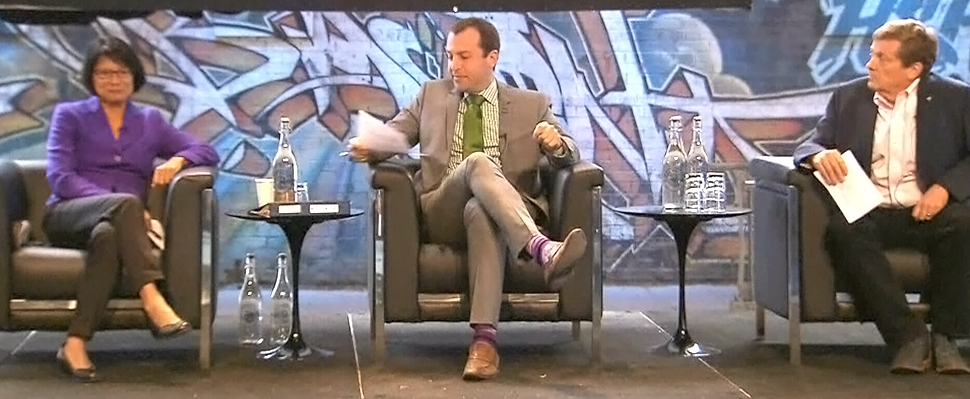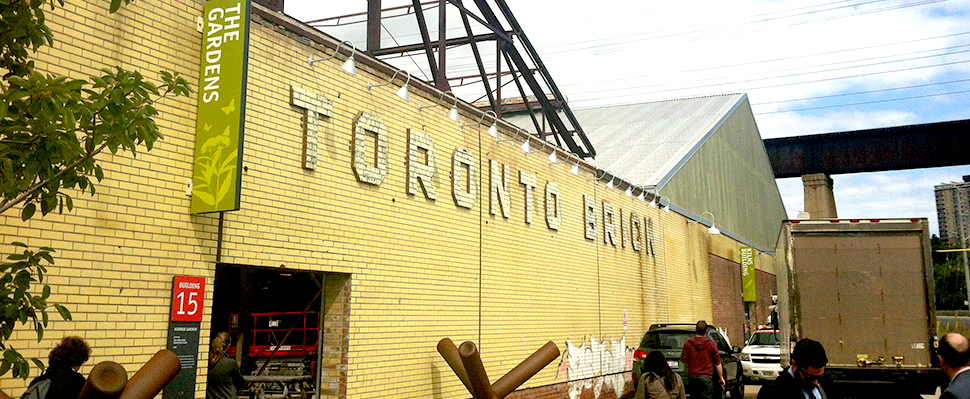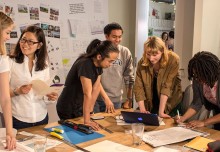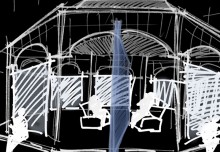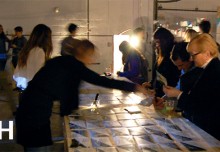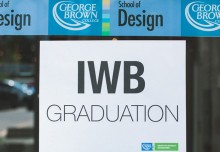Mayor’s debate: Candidates X Issues
Mayoral Debate at Evergreen Brick Works
article by Luiza Albertina, IwB student 2014-15On Sunday, September 14th, a mayoral debate hosted by CivicAction took place at the Evergreen Brick Works. Evergreen Brick Works is a community, environmental centre where people can gather to express their opinion and to have an experience related to sustainability. Given this, the choice of this location to host the event was very appropriate. Present for the debate was three candidates, Olivia Chow, John Tory and Ari Goldkind, participating in the full debate. Also present were three youth candidates, Matthew Crack, Morgan Baskin and Klim Khomenko, were on stage and they had a chance to introduce their plans for the city and address the question of youth unemployment.
The main issues debated were about jobs, infrastructure, transit, and the environment. In addition, the debate focused on six questions: youth employment, public spaces, severe weather, transportation, housing and, revenue tools. These topics, and the candidate’s ideas are relevant for our Major Project this year at the IwB, Regional Ecologies: Connecting Divided Places, especially as identifying these key topics helps us understand issues Toronto faces.
Also, this debate was an interesting opportunity to analyze the plans proposed by each candidate and to connected them to the six Systems of Infrastructure(defined last year during the Gateway Cities project. However, some of their proposals lacked a deep explanation, and some candidates tried to stand out from their adversary by attacking their plans without having one of their own
One question which called my attention and triggered me to think more in-depth about in the context of Toronto was that of youth unemployment. The rate is very high in comparison to other provinces in Canada. Can this problem be solved? How about the future? How does it affect the economy? Those are some questions that we generally ask ourselves when this topic is addressed, and this issue was put on the table in the beginning of the debate. Each of the three candidates has a proposal. While Chow and Tory shared the opinion that Toronto needs to improve youth employment, and they would create new jobs and training programs for young people. In contrast Goldkind attacked his opponents saying they hadn’t explained how they would pay for the infrastructure that they are proposing and he himself argued that he wants to use the budget to properly invest in more jobs for youth. It is positive to hear that the candidates each have their own opinion about this issue and want to change this situation, even though none of them seem to have presented a relevant or likely solution. Young people are the future, if they don’t have an opportunity to get a job, how would they get experience? This problem affects the economy and also the social system of Toronto in the long run, and therefore needs to be addressed more thoroughly.
In summary, the debate between candidates and how they presented their platforms wasn’t very useful or insightful, however the topics framed for the debate themselves are valuable as an analysis for our own research on Connecting Divided Places. We use this information to think about the future of Toronto, contemplating how Toronto could look by 2050. In addition, the mayoral debate was a moment to think and reflect on the city and if the issues on the table today will one day be solved in the future. I can only hope. Maybe we can all learn from the candidates of tomorrow, Klim Khomenko puts it simplest, “The time to change is now”.

